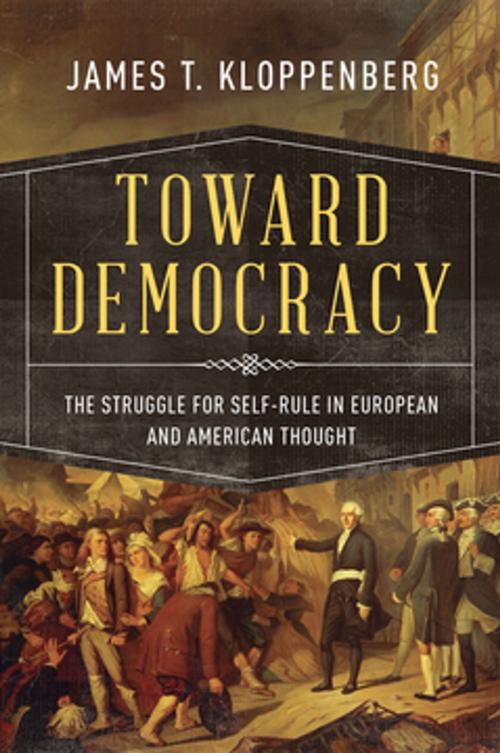Toward Democracy
The Struggle for Self-Rule in European and American Thought
Nonfiction, History, World History, Modern| Author: | James T. Kloppenberg | ISBN: | 9780190457686 |
| Publisher: | Oxford University Press | Publication: | May 6, 2016 |
| Imprint: | Oxford University Press | Language: | English |
| Author: | James T. Kloppenberg |
| ISBN: | 9780190457686 |
| Publisher: | Oxford University Press |
| Publication: | May 6, 2016 |
| Imprint: | Oxford University Press |
| Language: | English |
In this magnificent and encyclopedic overview, James T. Kloppenberg presents the history of democracy from the perspective of those who struggled to envision and achieve it. The story of democracy remains one without an ending, a dynamic of progress and regress that continues to our own day. In the classical age "democracy" was seen as the failure rather than the ideal of good governance. Democracies were deemed chaotic and bloody, indicative of rule by the rabble rather than by enlightened minds. Beginning in the 16th and 17th centuries, however, first in Europe and then in England's North American colonies, the reputation of democracy began to rise, resulting in changes that were sometimes revolutionary and dramatic, sometimes gradual and incremental. Kloppenberg offers a fresh look at how concepts and institutions of representative government developed and how understandings of self-rule changed over time on both sides of the Atlantic. Notions about what constituted true democracy preoccupied many of the most influential thinkers of the Western world, from Montaigne and Roger Williams to Milton and John Locke; from Rousseau and Jefferson to Wollstonecraft and Madison; and from de Tocqueville and J. S. Mill to Lincoln and Frederick Douglass. Over three centuries, explosive ideas and practices of democracy sparked revolutions--English, American, and French--that again and again culminated in civil wars, disastrous failures of democracy that impeded further progress. Comprehensive, provocative, and authoritative, Toward Democracy traces self-government through three pivotal centuries. The product of twenty years of research and reflection, this momentous work reveals how nations have repeatedly fallen short in their attempts to construct democratic societies based on the principles of autonomy, equality, deliberation, and reciprocity that they have claimed to prize. Underlying this exploration lies Kloppenberg's compelling conviction that democracy was and remains an ethical ideal rather than merely a set of institutions, a goal toward which we continue to struggle.
In this magnificent and encyclopedic overview, James T. Kloppenberg presents the history of democracy from the perspective of those who struggled to envision and achieve it. The story of democracy remains one without an ending, a dynamic of progress and regress that continues to our own day. In the classical age "democracy" was seen as the failure rather than the ideal of good governance. Democracies were deemed chaotic and bloody, indicative of rule by the rabble rather than by enlightened minds. Beginning in the 16th and 17th centuries, however, first in Europe and then in England's North American colonies, the reputation of democracy began to rise, resulting in changes that were sometimes revolutionary and dramatic, sometimes gradual and incremental. Kloppenberg offers a fresh look at how concepts and institutions of representative government developed and how understandings of self-rule changed over time on both sides of the Atlantic. Notions about what constituted true democracy preoccupied many of the most influential thinkers of the Western world, from Montaigne and Roger Williams to Milton and John Locke; from Rousseau and Jefferson to Wollstonecraft and Madison; and from de Tocqueville and J. S. Mill to Lincoln and Frederick Douglass. Over three centuries, explosive ideas and practices of democracy sparked revolutions--English, American, and French--that again and again culminated in civil wars, disastrous failures of democracy that impeded further progress. Comprehensive, provocative, and authoritative, Toward Democracy traces self-government through three pivotal centuries. The product of twenty years of research and reflection, this momentous work reveals how nations have repeatedly fallen short in their attempts to construct democratic societies based on the principles of autonomy, equality, deliberation, and reciprocity that they have claimed to prize. Underlying this exploration lies Kloppenberg's compelling conviction that democracy was and remains an ethical ideal rather than merely a set of institutions, a goal toward which we continue to struggle.















